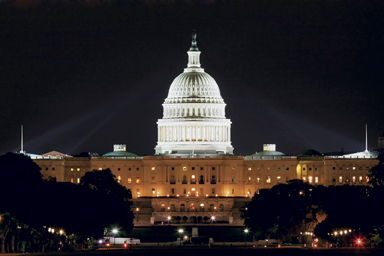Public Policy Analysis & Opinion
NAIC rejects plan for in-depth study of auto insurance pricing
In the late summer of 2017, the Consumer Federation of America (CFA) launched a headlong attack on the National Association of Insurance Commissioners (NAIC).
The CFA’s J. Robert (Bob) Hunter charged that the NAIC “discredited itself by bowing to industry pressure” with regard to an auto insurance study. Hunter—a bow-tie-favoring rogue actuary—fired another rhetorical broadside at the association of “insurers’ commissioners.”
Five years ago the NAIC empaneled a group to study the auto sector. Nothing much came of the effort other than that some regulators and insurance executives have padded their frequent-flyer and frequent-guest rewards accounts. This is the NAIC’s modus operandi whenever a progressive Congressional chairperson is not holding hearings.
When Bob Hunter lies down on that proverbial bed of nails and yelps about “industry pressure” at the NAIC, the sound of his displeasure no longer rings as true as it once did.
If Bob Hunter, the actuary, possessed the ability to “count votes,” he would take one look at the NAIC membership and consider that every day the association does nothing, that serves as a victory for humankind. The hard-right political makeup of state governments results in an NAIC membership that is not disposed to support affirmative regulation of the business of insurance.
Papillon unmasked?
In a way, and a way that Bob Hunter does not talk about much, he created this political bed of nails. The statement above will come as a surprise to those who know the name Bob Hunter as a source for colorful and well-calibrated snark that carries the credibility of an accredited actuary. For decades Bob Hunter’s technical expertise, media savvy, and sense of the absurd have made insurance lobbyists cringe.
Those of us who worked with Bob Hunter at the NAIC understood that he was a man of prayer. We knew that on a yearly basis he went to Africa on a spiritual mission with certain tribes. Some of us knew that Bob and his family worked hard to raise money for healthcare facilities in Uganda.
This commentator never “for a New York minute” thought that “another Bob” might align himself with a secret group that uses spirituality to serve the selfish whims of a powerful elite—an elite that at one time included a “key man” who advocated for the restoration of a property test to be applied to every American citizen’s right to vote.
This commentator knew Bob Hunter for many years without knowing about his other life. Bob’s bio and resume tout his association with Ralph Nader and his service in the administration of President Jerry Ford. Not a word about “intimate service to a shadowy cabal aimed at world domination, which I cannot publicly acknowledge.”
So in late 2009 and early 2010 when my friend Bob Hunter served as a spokesperson for an ultra-conservative group with a long history of blurring the—essential to democracy—line between church and state, I was struck with a gobsmacking level of surprise.
A particularly frisky series of headlines blared about sex and money scandals plaguing a high-class dormitory by the name of “The C Street House.” Major news organizations ran salacious tales of adultery and creative accounting centered in what could best be described “as home for wayward members of Congress,” who also shared the group’s far-right political bent. Yet for tax purposes the C Street House was designated a “church.” Oh, such creative tax accounting.
The ownership of the C Street House did have links to a faith-based entity that began operations in 1935. It was founded by a struggling Seattle-based Protestant minister named Abraham Vereide, who made a reputation working with the poor through Goodwill. Then he sought the aid and comfort of wealthy “businessmen.”
It appears that Vereide found more success in his outreach to the business community when he dropped appeals based on the “social gospel,” which called for respect for poor people. Vereide convened a small group of wealthy businessmen who found ways to associate Jesus with their bottom line and evinced a vicious hatred of labor organizers.
Democracy, let alone “industrial democracy,” was not on this group’s short list! Wage earners should achieve happiness through obedience to their bosses—whom Jesus chose as leaders through divine right.
Incorporating as The Fellowship Foundation, Vereide and his associates recruited new participants in a spiritual brotherhood devoted to the defense of wealth and power. That story about Jesus driving the moneychangers from the temple never seemed to reach this group. Using the mechanism of “prayer cells” rather than houses of worship, Vereide conceived of a spiritual-based organism that consisted of cells of rich men who feared social change, rising wages, and racial equality.
From the beginning, The Fellowship Foundation focused on earthly power coupled with spiritual power. As such, The Fellowship encouraged the “brotherhood” to engage in political activity at all levels. The group championed free-market economics: Put your trust in Jesus, not regulation.
After World War II, the group expanded its reach to an international stage, beginning with chumminess with disenfranchised high-ranking Nazis, who claimed to embrace a fundamentalist belief in Jesus. Who would doubt the word of a disenfranchised Nazi?
At home, The Fellowship’s influence grew based on its relationships with advocates for the military-industrial complex and the old Dixiecrat Congressional barons. In 1953 the group hosted its first National Prayer Breakfast, where presidents try to convince people that they know their Bible.
Over the next half century The Fellowship’s chumminess strongmen expanded to despots in the war-torn states of Southeast Asia, Indonesia, and Africa. As one might expect, without a great deal of research, and treasure troves of documentary records that just might not exist, no one can tell how much influence The Fellowship can claim over American foreign policy.
Yet when one reads the archived stories that mention The Fellowship from The Los Angeles Times, The New York Times, Harper’s, and a meticulously researched book by Jeff Sharlet titled The Family: The Secret Fundamentalism at the Heart of American Power, one thing is clear: The effective and efficient regulation of the business of insurance is not a core value of this secret society!
In the words of Perry White, the ill-tempered editor of The Daily Planet, “Great Caesar’s Ghost!” How did Bob Hunter become a shill for this group? At what crossroads did they meet? What was the deal cut for all eternity?
Certainly my friend Bob is not the type to shill for the specters of disenfranchised Nazis, environmental despoilers, and Ugandan despots who want to kill gays for political gain!
Nevertheless, in a way that I do not like to admit, in my opinion my friend Bob Hunter did just that.
Bob Hunter did his best to explain away the “excesses” of The Fellowship’s activities. He reminded this writer of Dennis Hopper’s portrayal of “An American Photojournalist” in Apocalypse Now:
The heads. You’re looking at the heads. I, uh—sometimes he goes too far, you know—he’s the first one to admit it!
This observation does not allege that Bob Hunter is responsible for the sins—or crimes—of others; rather, it questions his judgment. When Bob Hunter lies down on that proverbial bed of nails and yelps about “industry pressure” at the NAIC, the sound of his displeasure no longer rings as true as it once did. Industry pressure is a core tenet of “Biblical Capitalism.”
But we digress from the subject at hand.
Bait and switch
As the NAIC took its traveling drinking binge to Philadelphia, consumer advocates believed that the subgroup of a working group of the association’s Kafka-esque committee system would do something helpful. The study group would recommend an auto insurance “data call” to facilitate a meaningful analysis of product pricing. The data—including company-level information—would come to the NAIC.
This construction runs counter to decades of lobbying by insurance carriers. The carriers argue that competition rather than rate review is the best regulator of the sector—which ignores the McCarran-Ferguson Act’s call for state regulation. Some com- panies contend that providing company-specific data will compel them to transmit “trade secrets” to competitors.
Because the NAIC and its obscenely over-compensated senior staff are dependent on industry money, the rank-and-file insurance commissioner receives an appointment only after a review by insurers. Given the cumulative effect of a lot of alcohol, fine dining, and other recreational activity, the consumer advocates’ hopes were a long shot at best.
In the long history of the NAIC, the only examples of the association taking steps in the public interest followed unrelenting political pressure from progressive Congressional committee chairs. Because no progressive committee chairs are currently serving in Congress, consumer advocates should know that they are playing defense at the NAIC.
As this year’s NAIC national meeting convened, it became apparent that consumer groups once again would receive the proverbial tour of the underside of a bus. The NAIC-based data call was not going to happen.
Thanks to decades-long efforts by groups like The Fellowship Foundation, Bob Hunter had very few friends in the room when the Auto Insurance Study Group tossed aside a regulator-produced draft data collection plan for auto insurance on August 6 of this year. In place of the regulators’ work product, the NAIC study group applied the proverbial rubber stamp to a brand-spankin’ new proposal thrown over the transom by lobbyists.
The next day the CFA released a statement that blasted the NAIC. “After years of obstructing the efforts of the working group to collect data for a meaningful analysis of auto insurance affordability and pricing practices, the industry suddenly offered a gift of data as an alternative to the thorough research approach a group of state regulators had developed,” said Hunter.
Those nails must be causing Bob a lot of pain.
The author
Kevin P. Hennosy is an insurance writer who specializes in the history and politics of insurance regulation. He began his insurance career in the regulatory compliance office of Nationwide Insurance Cos. and then served as public affairs manager for the National Association of Insurance Commissioners (NAIC). Since leaving the NAIC staff, he has written extensively on insurance regulation and testified before the NAIC as a consumer advocate.






